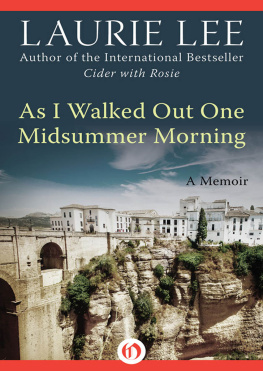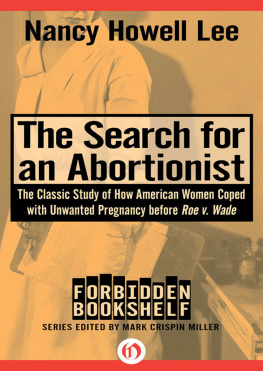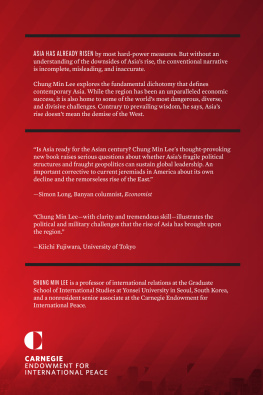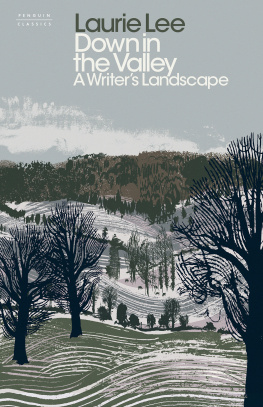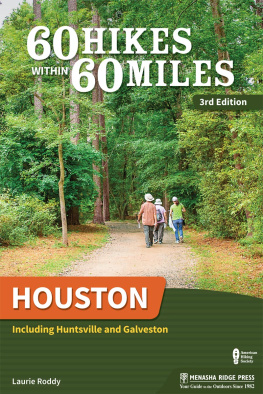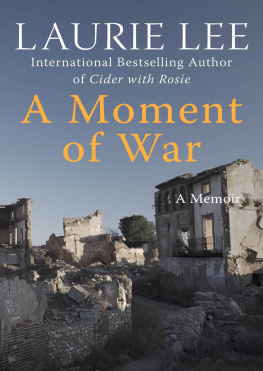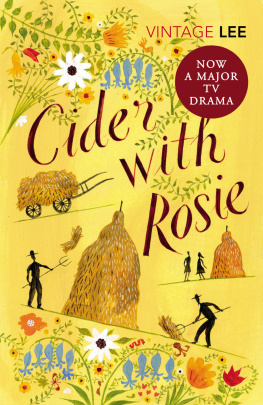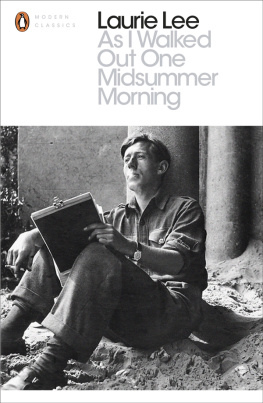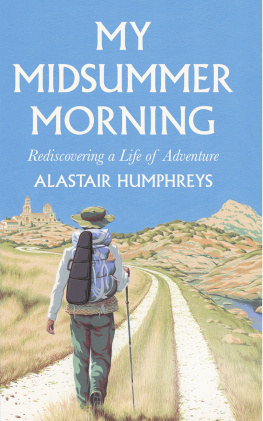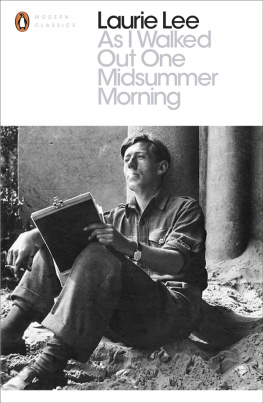As I Walked Out One Midsummer Morning
A Memoir
Laurie Lee

Just before the Spanish Civil War, I lived in a small fishing village in Andalucia whose Mayor has since erected a small monument on the sea-front proclaiming that The grand writer Laurie Lee once passed this way and immortalized the town in his work As I Walked Out One Midsummer Morning and A Rose for Winter. I originally concealed the name of the town for political reasons and referred to it as Castillo. Fortunately, that reticence no longer applies, and I am now able to give the town its real name of Almunecar.
L AURIE L EE
March 1995
CONTENTS
LONDON ROAD
T HE STOOPING FIGURE of my mother, waist-deep in the grass and caught there like a piece of sheeps wool, was the last I saw of my country home as I left it to discover the world. She stood old and bent at the top of the bank, silently watching me go, one gnarled red hand raised in farewell and blessing, not questioning why I went. At the bend of the road I looked back again and saw the gold light die behind her; then I turned the corner, passed the village school, and closed that part of my life for ever.
It was a bright Sunday morning in early June, the right time to be leaving home. My three sisters and a brother had already gone before me; two other brothers had yet to make up their minds. They were still sleeping that morning, but my mother had got up early and cooked me a heavy breakfast, had stood wordlessly while I ate it, her hand on my chair, and had then helped me pack up my few belongings. There had been no fuss, no appeals, no attempts at advice or persuasion, only a long and searching look. Then, with my bags on my back, Id gone out into the early sunshine and climbed through the long wet grass to the road.
It was 1934. I was nineteen years old, still soft at the edges but with a confident belief in good fortune. I carried a small rolled-up tent, a violin in a blanket, a change of clothes, a tin of treacle biscuits, and some cheese. I was excited, vainglorious, knowing I had far to go; but not, as yet, how far. As I left home that morning and walked away from the sleeping village, it never occurred to me that others had done this before me.
I was propelled, of course, by the traditional forces that had sent many generations along this road by the small tight valley closing in around one, stifling the breath with its mossy mouth, the cottage walls narrowing like the arms of an iron maiden, the local girls whispering, Marry, and settle down. Months of restless unease, leading to this inevitable moment, had been spent wandering about the hills, mournfully whistling, and watching the high open fields stepping away eastwards under gigantic clouds
And now I was on my journey, in a pair of thick boots and with a hazel stick in my hand. Naturally, I was going to London, which lay a hundred miles to the east; and it seemed equally obvious that I should go on foot. But first, as Id never yet seen the sea, I thought Id walk to the coast and find it. This would add another hundred miles to my journey, going by way of Southampton. But I had all the summer and all time to spend.
That first day alone and now I was really alone at last steadily declined in excitement and vigour. As I tramped through the dust towards the Wiltshire Downs a growing reluctance weighed me down. White elder-blossom and dog-roses hung in the hedges, blank as unwritten paper, and the hot empty roadthere were few motor cars then -reflected Sundays waste and indifference. High sulky summer sucked me towards it, and I offered no resistance at all. Through the solitary morning and afternoon I found myself longing for some opposition or rescue, for the sound of hurrying footsteps coming after me and family voices calling me back.
None came. I was free. I was affronted by freedom. The days silence said, Go where you will. Its all yours. You asked for it. Its up to you now. Youre on your own, and nobodys going to stop you. As I walked, I was taunted by echoes of home, by the tinkling sounds of the kitchen, shafts of sun from the windows falling across the familiar furniture, across the bedroom and the bed I had left.
When I judged it to be tea-time I sat on an old stone wall and opened my tin of treacle biscuits. As I ate them I could hear mother banging the kettle on the hob and my brothers rattling their tea-cups. The biscuits tasted sweetly of the honeyed squalor of home still only a dozen miles away.
I might have turned back then if it hadnt been for my brothers, but I couldnt have borne the look on their faces. So I got off the wall and went on my way. The long evening shadows pointed to folded villages, homing cows, and after-church walkers. I tramped the edge of the road, watching my dusty feet, not stopping again for a couple of hours.
When darkness came, full of moths and beetles, I was too weary to put up the tent. So I lay myself down in the middle of a field and stared up at the brilliant stars. I was oppressed by the velvety emptiness of the world and the swathes of soft grass I lay on. Then the fumes of the night finally put me to sleep my first night without a roof or bed.
I was woken soon after midnight by drizzling rain on my face, the sky black and the stars all gone. Two cows stood over me, windily sighing, and the wretchedness of that moment haunts me still. I crawled into a ditch and lay awake till dawn, soaking alone in that nameless field. But when the sun rose in the morning the feeling of desolation was over. Birds sang, and the grass steamed warmly. I got up and shook myself, ate a piece of cheese, and turned again to the south.
Now I came down through Wiltshire, burning my roots behind me and slowly getting my second wind; taking it easy, idling through towns and villages, and knowing what it was like not to have to go to work. Four years as a junior in that gaslit office in Stroud had kept me pretty closely tied. Now I was tasting the extravagant quality of being free on a weekday, say at eleven oclock in the morning, able to scuff down a side-road and watch a man herding sheep, or a stalking cat in the grass, or to beg a screw of tea from a housewife and carry it into a wood and spend an hour boiling a can of spring water.
As for this pocket of England through which I found myself walking, it seemed to me immense. A motor car, of course, could have crossed it in a couple of hours, but it took me the best part of a week, treading it slowly, smelling its different soils, spending a whole morning working round a hill. I was lucky, I know, to have been setting out at that time, in a landscape not yet bulldozed for speed. Many of the country roads still followed their original tracks, drawn by packhorse or lumbering cartwheel, hugging the curve of a valley or yielding to a promontory like the wandering line of a stream. It was not, after all, so very long ago, but no one could make that journey today. Most of the old roads have gone, and the motor car, since then, has begun to cut the landscape to pieces, through which the hunched-up traveller races at gutter height, seeing less than a dog in a ditch.
But for me, at that time, everything I saw was new, and I could pass it slowly through the hours of the day. While still only a days march from home, coming through Malmesbury and Chippenham, already I noticed different shades of speech. Then a day or so later I passed down the Wylye Valley and came out on to a vast and rolling plain a sweep of old dry land covered with shaggy grass which looked as though it had just been cropped by mammoths. Still vague about places, I was unprepared for the delicate spire that rose suddenly out of the empty plain. As I walked, it went before me, gliding behind the curve of the hill and giving no hint of the city beneath it.

